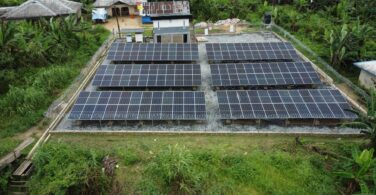Evaluation of potential criteria for identifying chemicals and polymers of concern and problematic plastic products
A briefing report for the INC-3 about the results of the informal technical dialogue co-chaired by the UK Government and Government of Brazil

At INC-2 many members identified the need for further work on polymers and chemicals of concern and potentially problematic plastic products. However, no formal mandate was agreed. To informally contribute to the process, Brazil and the United Kingdom tasked Chatham House, supported by the Royal Society of Chemistry, the Instituto de Macromoleculas and the Federal University of São Carlos, to convene a global group of experts nominated by INC Members and engage in a country-led informal technical dialogue.
The dialogue was structured around an online real-time Delphi process conducted September 22nd - October 10th 2023. The Delphi method helped identify the level of agreement or disagreement among the nominated experts with regards to a compilation of potential definitions and criteria for identifying chemicals and polymers of concern and problematic plastic products. In the survey, experts were asked to indicate the level of agreement with each criterion. The scale ranged from “strongly disagree” to “strongly agree”. Experts were also able to suggest additional criteria with which the expert group could review and comment on. In total, 104 criteria on chemicals and polymers of concern and problematic plastic products were compiled, reviewed, and assessed by the experts. The detailed methodology and the list of criteria and their sources are listed in Appendices A B & C (available for download below).
The United Kingdom and Brazil invited member states and regional integration organisations to nominate technical experts to participate in the country-led informal dialogues. The invites were issued to the UNEP regional representatives and INC regional representatives. Initially, UN regional groups were asked to try to limit their nominations to 7 experts. However, this was not possible for most regions and further guidance was issued to try to keep nominations to 10 experts per region, with scope for further nominations.
All UN regional groups made nominations, with a total of 65 experts nominated across 46 member states and regional integration organisations. Where multiple nominations were received from individual member states, the United Kingdom and Brazil requested those experts to coordinate their response so that only one expert was registered to the online platform and not more than one response could be received by each member state.
This meant that of the 65 experts nominated, 46 were provided with the link to complete the survey on the online platform. Of these, 37 registered experts provided responses to this survey (see details on the countries that completed the survey in Annex D). Furthermore, experts also had an opportunity to provide comments and statements in relation to each criterion and a brief exchange of views between experts was enabled through a final online meeting. The summary of such comments is included in the report.
This final report was prepared by Chatham House with initial input from the group of experts and finalised for submission by the co-chairs. Due to time limitations, the nominated expert group has not been given the opportunity for final review prior to publication. The report does not pre-empt or pre-judge the official position of the country by which the experts were nominated, particularly with regards to the negotiations for an international legally binding instrument on plastic pollution.
The summary report (available below) summarises the outcomes of the country-led informal dialogue on chemicals and polymers of concern and problematic plastic products.
It identifies a short list of criteria that may be relevant to identify polymers and chemicals of concern, as well as problematic plastic products, which received high levels of agreement between the group of experts. It also lists criteria in which the opinion of the experts was most divergent and likely in need of further discussion. Chatham House has summarised key thematic reflections that were made by group members regarding the use of criteria.
Finally, it provides various viewpoints of the experts as a reference for INC-3 to consider. The appendices outline the Delphi methodology, the full list of criteria and assessments as a statistical table, and the list of references and sources used to design the Delphi survey, the initial list of criteria and the additional criteria proposed by experts.

